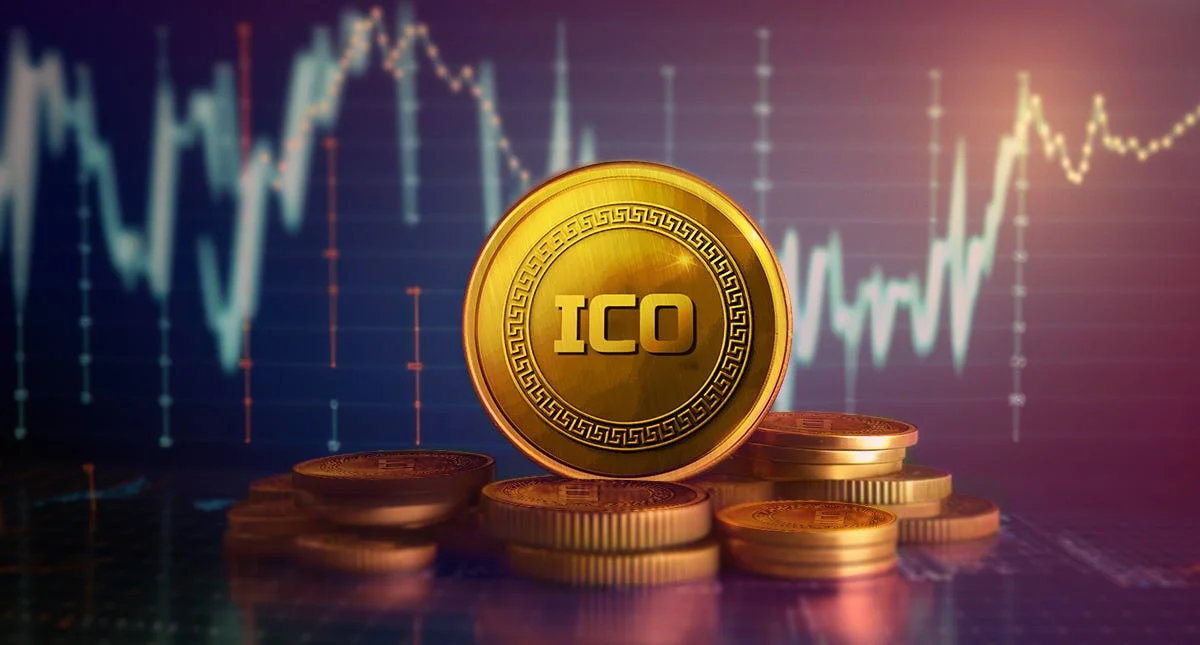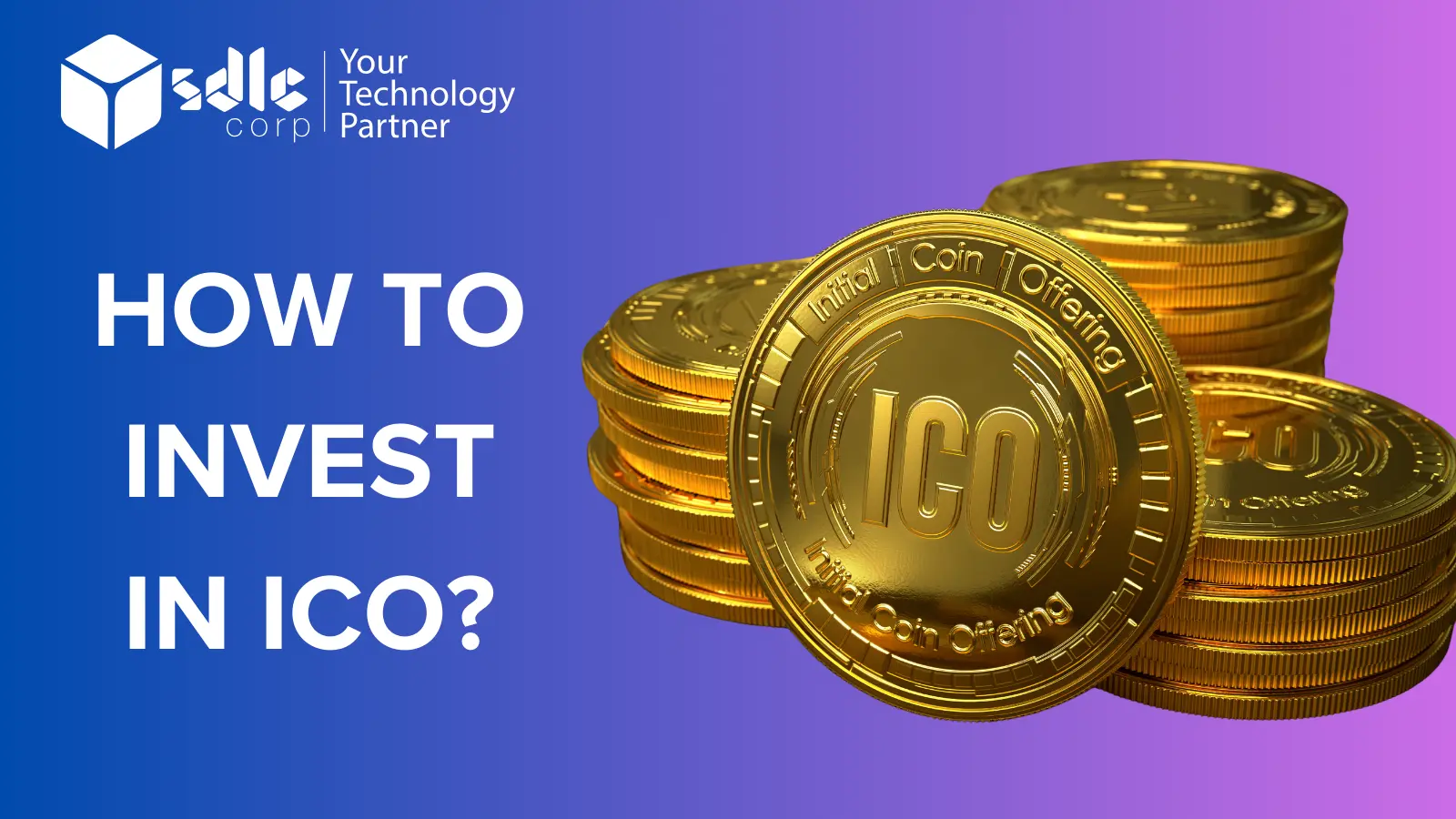Initial Coin Offerings (ICOs) have revolutionized how startups and blockchain projects raise capital, offering investors worldwide the opportunity to participate in early-stage ventures. In this dynamic landscape, understanding the intricacies of ICO investing is essential for seasoned investors and cryptocurrency newcomers. This guide aims to provide a comprehensive overview of ICOs, covering everything from their fundamental concepts to practical steps for participation and post-investment management. By navigating the risks and opportunities inherent in ICO investments, investors can make informed decisions and seize the potential of this innovative fundraising model.

Where to buy ICO? : Interested in investing in Initial Coin Offerings (ICOs) but unsure where to start? This guide provides insight into the best platforms and exchanges for purchasing ICO tokens, ensuring you make informed investment decisions in the ever-evolving world of cryptocurrency.
Understanding ICOs:
At its core, an ICO functions similarly to an Initial Public Offering (IPO) in traditional finance, but with some key differences. Instead of issuing shares of a company, ICOs offer tokens through ICO services that grant investors access to the project’s products, services, or network. These tokens can have different functionalities, such as providing access to a platform, representing ownership in the project, or serving as a means of exchange within the ecosystem.
Investors participate in ICOs with the expectation that the value of the tokens will appreciate over time as the project grows and achieves its objectives. If the project is successful, the tokens may increase in value, allowing investors to profit from their investment. However, it’s essential to recognize that ICO investments carry inherent risks, including the possibility of project failure, regulatory uncertainty, and market volatility.
One of the defining features of ICOs is their accessibility to a global audience of investors through ICO services. Unlike traditional fundraising methods often restricted to accredited investors or institutional players, ICOs allow anyone with an internet connection and cryptocurrency to participate in early-stage investment opportunities. This democratization of fundraising has contributed to the rapid growth and popularity of ICOs within the cryptocurrency community.
In summary, ICOs are a novel fundraising mechanism that leverages blockchain technology to enable cryptocurrency projects to raise capital from a global pool of investors through ICO services. These projects can finance their development by issuing digital tokens to backers and incentivizing participation in their ecosystems. However, investors should conduct thorough due diligence and carefully assess the risks before participating in ICOs, as the market is still relatively young and unregulated
What are the various platforms available for investing in ICOs?
- Binance Launchpad: Binance Launchpad is one of the most well-known ICO platforms, operated by the world’s largest cryptocurrency exchange, Binance. Projects launched on Binance Launchpad often receive significant attention from investors due to the platform’s large user base and credibility.
- CoinList: CoinList is a platform that helps blockchain projects raise capital and engage with potential investors. It has gained popularity for hosting compliant token sales for high-quality projects, attracting both retail and institutional investors.
- TokenSoft: TokenSoft provides a comprehensive platform for launching and managing token sales. It offers compliance solutions to ensure that token sales adhere to regulatory requirements, making it an attractive option for projects seeking to conduct legally compliant ICOs.
- Polkadot: Polkadot is a decentralized platform that allows different blockchains to interoperate. It has its own native token DOT, which is used for governance and staking. Polkadot’s ecosystem has seen a growing number of ICOs launching on its platform, offering opportunities for investors interested in projects built on interoperable blockchains.
How to get advisors for ICO? : securing knowledgeable advisors is crucial for the success of an Initial Coin Offering (ICO). Advisors bring expertise, credibility, and industry connections that can enhance the project’s visibility and attract investors. However, finding the right advisors requires careful consideration and strategic outreach. This guide explores effective methods for identifying, approaching, and incentivizing advisors to join your ICO project.
Ready to invest in ICOs? Let's start your journey!

What are the different types of tokens available?

Within ICOs, tokens can serve different purposes and have distinct characteristics. Understanding the types of tokens offered is essential for assessing their potential value and utility. Utility tokens grant access to a product or service within the platform, while security tokens represent project ownership and may offer dividends or other rights.
1. Utility Tokens:
- Utility tokens are the most common type of token offered in ICOs. These tokens are designed to provide access to a specific product or service within the project’s ecosystem.
- For example, utility tokens may grant holders access to features, functionalities, or benefits within a decentralized application (DApp) or platform. They can be used for tasks such as paying transaction fees, accessing premium content, or participating in governance mechanisms.
- The value of utility tokens is often tied to the demand for the underlying product or service within the project, meaning that as the platform’s adoption grows, the utility token’s value may increase.
2. Security Tokens:
- Security tokens represent ownership in a company, project, or asset and may offer investors various rights, such as dividends, profit-sharing, or voting privileges.
- Unlike utility tokens, security tokens are considered securities under regulatory frameworks in many jurisdictions, subjecting them to securities laws and regulations.
- Security tokens may allow investors to invest in real-world assets, such as real estate, stocks, bonds, or commodities, through blockchain-based tokens.
- Investing in security tokens typically involves compliance with Know Your Customer (KYC) and Anti-Money Laundering (AML) regulations and adherence to securities laws governing fundraising and investor protection.
3. Payment Tokens:
- Payment tokens, or currency tokens or cryptocurrencies, are designed primarily as a medium of exchange within a blockchain ecosystem.
- Examples of payment tokens include Bitcoin (BTC), Ethereum (ETH), and Litecoin (LTC). These tokens are used for conducting transactions, transferring value, and storing wealth.
- Payment tokens may also be used for remittances, international transfers, micropayments, and other financial transactions, offering users a decentralized and borderless alternative to traditional fiat currencies.
4. Equity Tokens:
- Equity tokens represent ownership in a company or project, similar to traditional equity shares, but are issued and traded on blockchain networks.
- These tokens entitle holders to a share of the company’s profits, voting rights, and other benefits associated with ownership.
- Equity tokens may be issued through security token offerings (STOs), regulated fundraising events that are compliant with securities laws.
5. Governance Tokens:
- Governance tokens grant holders the right to participate in the governance and decision-making processes of a decentralized protocol, platform, or organization.
- Holders of governance tokens can vote on proposals, elect representatives, and influence the direction of the project or ecosystem.
- Governance tokens are often used in decentralized autonomous organizations (DAOs) and decentralized finance (DeFi) platforms to enable community governance and decentralized decision-making.
How ICO Ethereum work? : ICO (Initial Coin Offering) on the Ethereum platform works by allowing startups to raise funds by issuing tokens on the Ethereum blockchain. These tokens represent ownership or utility within the project or platform. Investors can purchase these tokens using Ether (ETH) during the ICO period. The Ethereum blockchain provides transparency and security for these transactions, enabling decentralized crowdfunding for new projects and initiatives.
What Are The Features?

1. Fundraising Mechanism:
- ICOs serve as a fundraising mechanism for cryptocurrency projects to raise capital by issuing digital tokens to investors in exchange for funding.
- Projects typically set a fundraising goal and offer a fixed number of tokens for sale during the ICO period.
2. Token Issuance:
- During an ICO, the project issues tokens representing various assets, utilities, or rights within the project’s ecosystem.
- These tokens are typically based on blockchain technology and adhere to specific token standards, such as ERC-20 for Ethereum-based tokens.
3. Global Accessibility:
- ICOs are accessible to investors worldwide, allowing anyone with an internet connection and cryptocurrency to participate.
- This global accessibility democratizes investment opportunities and enables a diverse range of individuals to support projects they believe in, regardless of their geographic location or financial status.
4. Decentralization:
- ICOs leverage decentralized blockchain networks to facilitate fundraising and token issuance, eliminating the need for intermediaries or centralized authorities.
- This decentralization fosters transparency, immutability, and trust in the fundraising process, as transactions are recorded on a distributed ledger accessible to all participants.
5. Token Utility:
- ICO tokens often serve a functional purpose within the project’s ecosystem, providing holders access to products, services, or network benefits.
- Utility tokens can be used to pay transaction fees, access premium content, participate in governance mechanisms, or receive service discounts.
6. Investor Incentives:
- ICOs may offer various incentives to attract investors, such as early access to tokens, bonus token allocations, or discounts on token prices for early contributors.
- These incentives aim to incentivize participation in the ICO and reward early backers for supporting the project.
7. Liquidity:
- ICO tokens are typically tradable on cryptocurrency exchanges shortly after the conclusion of the ICO, providing investors with liquidity and flexibility to buy, sell, or trade tokens as desired.
- This liquidity enables investors to capitalize on short-term price movements or take profits as the project matures.
8. Community Engagement:
- ICOs often foster vibrant and engaged communities around the projects, comprising investors, enthusiasts, developers, and other stakeholders.
- These communities provide valuable feedback, support, and collaboration opportunities, contributing to the long-term success and sustainability of the projects.
9. Innovation:
- ICOs enable cryptocurrency projects to raise capital and finance their development, driving innovation within the cryptocurrency and blockchain.
- By funding innovative projects and ideas, ICOs support the growth and evolution of decentralized technologies and ecosystems.
Eager to invest in ICOs? Let's explore the possibilities!

What are the benefits?
1. Access to Early-Stage Investments:
ICOs allow investors to invest in early-stage cryptocurrency projects with the potential for significant growth. By participating in ICOs, investors can get in on the ground floor of innovative projects before they become widely known or accessible through traditional investment channels.
2. Global Accessibility:
ICOs are open to investors worldwide, allowing anyone with an internet connection and cryptocurrency to participate. This global accessibility democratizes investment opportunities and enables a diverse range of individuals to support projects they believe in, regardless of their geographic location or financial status.
3. Liquidity and Trading Opportunities:
ICO tokens are typically tradable on cryptocurrency exchanges shortly after the conclusion of the ICO. This liquidity allows investors to buy and sell tokens as desired, potentially capitalizing on short-term price movements or taking profits as the project matures.
4. Potential for High Returns:
Investing in successful ICOs can yield substantial returns for investors, especially if the value of the tokens appreciates significantly over time. Early backers of successful projects have seen exponential returns on their initial investments, making ICOs attractive for those seeking high-risk, high-reward opportunities.
5. Incentives and Utility:
ICO tokens often serve a functional purpose within the project’s ecosystem, giving holders access to products, services, or network benefits. These utility tokens can be used for various purposes, such as accessing platform features, participating in governance processes, or receiving service discounts.
6. Support for Innovation:
By participating in ICOs, investors can support the development of innovative blockchain projects that have the potential to disrupt traditional industries and technologies. Funding raised through ICOs enables project teams to pursue their vision and bring new ideas to fruition, driving innovation within the cryptocurrency and blockchain.
7. Community Engagement:
ICOs often foster vibrant and engaged communities around the projects, comprising investors, enthusiasts, developers, and other stakeholders. These communities provide valuable feedback, support, and collaboration opportunities, contributing to the long-term success and sustainability of the projects.

Risks and Considerations:
Investing in ICOs comes with inherent risks that investors must be aware of and mitigate. Regulatory risks vary by jurisdiction and can impact the legality of participating in ICOs. Technological risks include vulnerabilities in smart contracts or the underlying blockchain infrastructure. Market risks relate to the volatility and liquidity of the token markets, while project risks encompass factors such as team competence, execution risk, and market adoption.
Researching ICOs:
Thorough research is paramount before investing in any ICO. Evaluating the project’s team, assessing the project’s viability, reviewing the whitepaper, analyzing the roadmap, and gauging community engagement are essential steps in the due diligence process.
Legal and Regulatory Framework:
Navigating the legal and regulatory landscape surrounding ICO investments is crucial to avoid violating laws and regulations. Jurisdictional considerations vary widely, with some countries embracing ICOs while others impose strict regulations or outright bans. Compliance with applicable laws and guidelines is essential to ensure the legitimacy of ICO participation.
Setting Up for Participation:
Before participating in an ICO, investors need to set up their wallets, select suitable exchanges, and implement robust security measures to protect their investments. Choosing a secure wallet, identifying reputable exchanges, and safeguarding private keys are critical steps in preparing for ICO participation.
Participating in ICOs:
Participating in an ICO typically involves registering or allowlisting, contributing funds through cryptocurrency, and interacting with smart contracts to receive tokens. Understanding the mechanics of ICO participation and following the project’s instructions is essential for a smooth investment process.
Post-ICO Management:
Once the ICO is completed, investors must manage their tokens effectively to maximize their investment returns. This includes securely storing tokens, monitoring project progress, and engaging in trading activities on cryptocurrency exchanges.
Diversification and Risk Management:
Diversifying investment portfolios and implementing risk mitigation strategies are essential to sound investment practices. By allocating investments across multiple ICO projects and asset classes, investors can reduce their exposure to individual project risks and market volatility.
Conclusion:
Investing in ICOs offers exciting opportunities for investors to participate in the growth of innovative blockchain projects. However, navigating the complexities of ICO investing requires careful research, risk management, and compliance with legal and regulatory requirements. By following the guidelines outlined in this comprehensive guide, investors can confidently approach ICO investments and maximize their chances of success in this dynamic and evolving market.
FAQs
1: How to buy ICO?
A: To buy an ICO, research projects, set up a compatible digital wallet, register on the ICO platform, undergo KYC verification if required, deposit funds, select desired tokens, and complete the purchase according to the ICO’s instructions.
2: What are the key factors to consider when researching ICO projects for investment?
A: When researching ICO projects for investment, consider the project’s whitepaper, team expertise, roadmap, tokenomics, community engagement, and existing partnerships. Evaluate market demand, technological innovation, regulatory compliance, and the project’s potential for long-term viability and adoption.
3: How can investors ensure regulatory compliance when participating in ICOs?
A: Investors can ensure regulatory compliance when participating in ICOs by conducting thorough due diligence on the project’s legal framework, verifying compliance with relevant securities laws, understanding jurisdictional regulations, and seeking guidance from legal professionals specializing in cryptocurrency and blockchain.
4: What steps should be taken to secure and manage digital wallets for ICO investments?
To secure and manage digital wallets for ICO investments, investors should follow these steps:
1. Choose a reputable wallet provider with strong security measures.
2. Enable two-factor authentication for added security.
3. Keep private keys and recovery phrases offline and in a secure location.
4. Regularly update wallet software and use reputable antivirus software.
5. Avoid sharing wallet information and use secure connections when accessing wallets online.
6. Consider using hardware wallets for additional security.
7. Regularly monitor wallet activity for any unauthorized transactions.
5: What are some common risks associated with investing in ICOs, and how can they be mitigated?
A:Common risks associated with investing in ICOs include regulatory uncertainty, project failure, scams, and market volatility. Investors can mitigate these risks by conducting thorough due diligence, verifying project legitimacy, diversifying investments, and seeking advice from financial professionals. Additionally, staying informed about regulatory developments and being cautious of unrealistic promises can help reduce the likelihood of falling victim to scams or fraudulent projects.
Contact Us
Let's Talk About Your Project
- Free Consultation
- 24/7 Experts Support
- On-Time Delivery
- sales@sdlccorp.com
- +1(510-630-6507)















